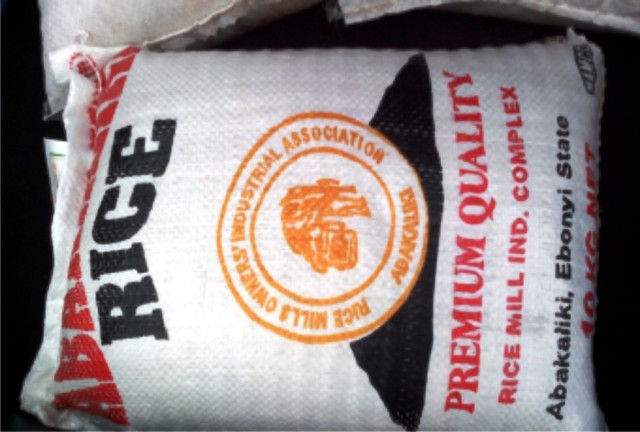Opinion
Whither Abakaliki Rice?

Abakaliki, the capital city of Ebonyi State is well known for its rice production potential since the inception of Nigeria as a country. Although the crude approach to its rice production from the onset, posed a serious challenge as local consumers showed preference for imported rice like Uncle Ben’s and the likes after the Nigeria/Biafra civil war.
The relegation of the Abakaliki-produced rice to the exclusive of the second class citizens due to its poorly refined nature, affected its revenue generation capacity, but that never deterred its continuous production even though it could not boost the state’s foreign reserve.
Today, the doggedness of Abakaliki rice producers in spite of all odds, has made the city renowned for rice production among other local farm produce. This, of course, was not without the efforts of the Ebonyi State Government which established a rice mill as the first industry after the creation of the State in 1996.
With the evolvement of modern technologies in the production of this rice, it is now reckoned to be very nutritious coupled with the fact that it is salted naturally with good taste.
Abakaliki rice has thus become a must-serve meal in many Nigerian homes, a reason for which the government of Ebonyi State has considered a triplication of the rice milling industry in the state, to meet the local market demand as well as for exportation.
Although reasonably priced, Abakaliki rice gained high patronage by the indigenous citizens of Nigeria when rice importation was banned by the Federal Government. The fact that there was no better alternative made people from various places in Nigeria to visit Ebonyi State just to buy rice. Till date, the industry remains the major revenue earner to Ebonyi State Government.
With all that has been said and known about Abakaliki rice, ranging from its rich nutritive value that has earned it the consumers’ favourite, to its price affordability, one is worried by the scarcity of this same product in many states of the federation, Rivers State to be precise. With all the emphasis on locally made rice, it has not been easy getting Abakaliki rice in Port Harcourt.
I recall that the Nigerian Customs Service (NCS) recently announced a seizure of two hundred and five thousand, eight hundred and twenty-five (205,825) bags of rice with a duty paid value of over N1 billion from rice smugglers between March 2016 and March 2017. This excludes another one hundred and thirty-six thousand, five hundred and six (136,506) 50kg bags of rice seized between January and March (2016).
The Public Relations Officer of the service, Mr Joseph Attah, said the reinstatement of the ban on rice importation through the land borders, few months after it had been lifted in 2016, was to stem the tide of rice smuggling, protect Nigerians and shift taste to locally produced rice.
If therefore, the whole idea of banning the importation of rice amidst other essential goods, and ensuring its implementation to the letter, is to protect Nigerians and shift taste to locally made goods, what then is the guarantee that these intentions would be met when the locally produced goods are not made available?
Could it have been that the Abakaliki rice is not produced in such commercial quantity, sufficient enough to serve the local consumers? Or is the distributive channel faulty? I should suppose that production is only said to be complete when the produced good arrives its purported destination.
From the foregoing, I’m afraid that the plea by the Nigerian Custom’s image maker, Mr Attah, that “all Nigerians should see smuggling as a crime so as to be willing to give credible information” about the smugglers may suffer some form of frustration if this story of lack of locally produced rice persists.
It is, therefore, my thought that if the fight against dependence on foreign rice must be won, Nigeria must consider it imperative to improve the domestic industry so as to not only feed the local market, but also serve as foreign reserve earner for the country.
Sylvia ThankGod-Amadi
Opinion
Empowering Youth Through Agriculture

Opinion
Of Protests And Need For Dialogue

Opinion
Tackling Noise Pollution in Nigeria

-

 Politics22 hours ago
Politics22 hours agoPFN Rejects Call For INEC Chairman’s Removal Over Genocide Comments
-

 Sports21 hours ago
Sports21 hours agoEnekwechi wins Orlen Cup in season opener
-

 Rivers22 hours ago
Rivers22 hours agoFasthire, PHCCIMA, CIPM Host CareerFest 2026 In PH
-

 Sports21 hours ago
Sports21 hours agoFalconets, Senegalese Lionesses arrive Ibadan for qualifier
-

 Sports21 hours ago
Sports21 hours agoSimba open Nwabali talks
-

 Business23 hours ago
Business23 hours agoNCDMB, Jake Riley Empower 250 Youths On Vocational Skills
-

 Niger Delta22 hours ago
Niger Delta22 hours agoStakeholders Task INC Aspirants On Dev … As ELECO Promises Transparent, Credible Polls
-

 Niger Delta22 hours ago
Niger Delta22 hours agoTinubu, Jonathan, Diri Pay Last Respect To Ewhrudjakpo

